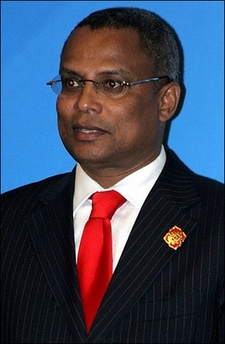PM says Africa must stop blaming colonialism for its woes
(AFP)Updated: 2006-12-22 11:28
LISBON - Africa must stop blaming its colonial past for its problems and instead point the finger at the continent's leaders, the prime minister of the west African archipelago of Cape Verde said.
Colonialism and its legacy of slavery played "an important role in the deterioration of the situation in Africa" but "Africans have had Africa in their hands for half a century," Cape Verde Prime Minister Jose Maria das Neves said in an interview with the Portuguese news agency Lusa.
"You can't continue to justify the current situation of the continent with colonialism, slavery and unfair trading terms," he said.
"Responsibility for the current state of affairs in the African continent lies firstly in the hands of African leaders who must assume their responsibility to develop a clear strategy for Africa's future that takes advantage of all of its human capabilities and natural resources," he added.
Of all the nations of Africa, only Ethiopia and Liberia escaped the shackles of colonialism.
Ghana in 1957 became the first African nation to obtain independence when it broke free from British control. Dozens of other former African colonies followed its example over the coming years.
Many analysts argue that corruption and despotic regimes in many African nations have their roots in the colonial era when colonial governments had absolute power.
Cape Verde, an arid archipelago in the Atlantic about 500 kilometres (300 miles) off the coast of Africa, is seen by many international donors as a model state since it gained independence from Portugal in 1975.
While the country has a high unemployment rate, it is seen as politically stable with an emerging prosperity. The International Monetary Fund estimates it will post economic growth of 5.5 percent in 2006.
|
||
|
||
|
|

